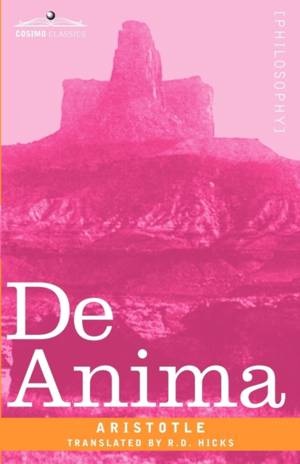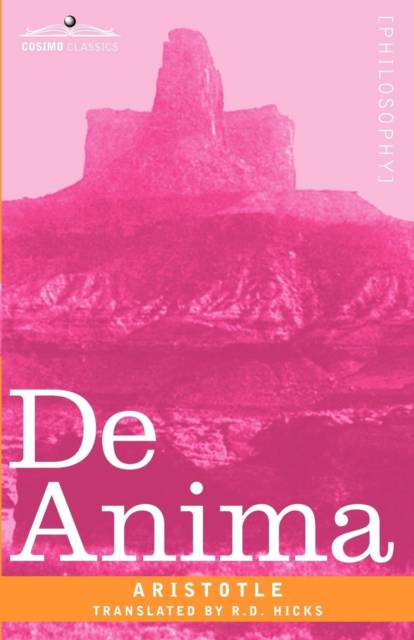
- Afhalen na 1 uur in een winkel met voorraad
- Gratis thuislevering in België vanaf € 30
- Ruim aanbod met 7 miljoen producten
- Afhalen na 1 uur in een winkel met voorraad
- Gratis thuislevering in België vanaf € 30
- Ruim aanbod met 7 miljoen producten
Zoeken
Omschrijving
Knowledge, however, is an attribute of the soul, and so are perception, opinion, desire, wish, and appetency generally; animal locomotion also is produced by the soul; and likewise growth, maturity, and decay. Shall we then say that each of these belongs to the whole soul, that we think, that is, and perceive and are moved and in each of the other operations act and are acted upon with the whole soul, or that the different operations are to be assigned to different parts? -from Book I The writings of Greek philosopher ARISTOTLE (384BC-322BC)-student of Plato, teacher of Alexander the Great-are among the most influential on Western thought, and indeed upon Western civilization itself. From theology and logic to politics and even biology, there is no area of human knowledge that has not been touched by his thinking. In De Anima-which means, literally, On the Soul-the philosopher ponders the very nature of life itself. What is the essence of the lifeforce? Can we consider that plants and animals have souls? How does human intellect divide us from other animals? Is the human mind immortal? All these questions, and others that seem unanswerable, are explored in depth in this, one of the most important works ever written on such eternal questions. Students and armchair philosophers will find it a challenging-and rewarding-read.
Specificaties
Betrokkenen
- Auteur(s):
- Vertaler(s):
- Uitgeverij:
Inhoud
- Aantal bladzijden:
- 108
- Taal:
- Engels
Eigenschappen
- Productcode (EAN):
- 9781605204321
- Verschijningsdatum:
- 1/12/2008
- Uitvoering:
- Paperback
- Formaat:
- Trade paperback (VS)
- Afmetingen:
- 140 mm x 216 mm
- Gewicht:
- 136 g

Alleen bij Standaard Boekhandel
+ 43 punten op je klantenkaart van Standaard Boekhandel
Beoordelingen
We publiceren alleen reviews die voldoen aan de voorwaarden voor reviews. Bekijk onze voorwaarden voor reviews.











